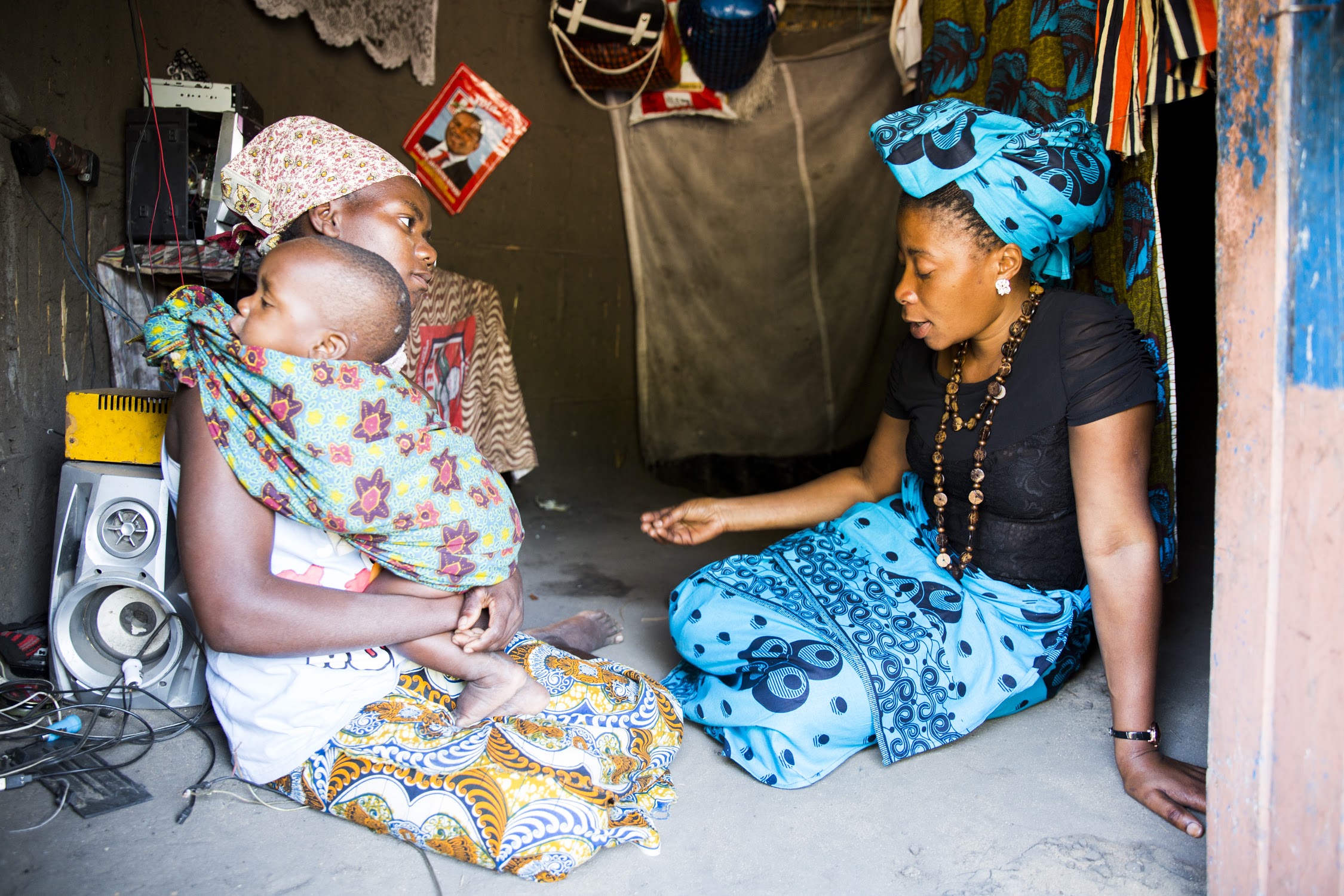
Over the past thirty years, we’ve seen massive overall reductions in the numbers of women dying during pregnancy and childbirth. Maternal deaths around the world dropped from an estimated 532,000 in 1990 to 303,000 in 2015. Yet inequalities are growing both between and within countries.
In Mozambique, the rate of maternal mortality is among the highest in the world—489 deaths per 100,000 live births. This is due in part to breakdowns in the delivery of health services that prevent women and adolescent girls from seeking and receiving the care they need.
On paper, there are often sound and progressive policies in place, but those policies are a far cry from what is experienced in reality. In some cases, health facilities are understaffed or lack basic but life-saving medicines and supplies.
In other cases, expectant mothers may be treated disrespectfully, abused or neglected; they may be subjected to bribery or forced to pay illegal fees; or they have no privacy during labor and delivery. Or it may be that no one takes the time to explain to them why their baby has died.
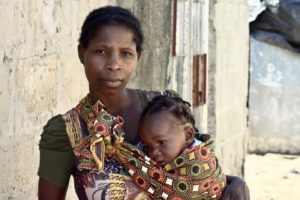
Mother and child in Mozambique
Limited enforcement of existing policy, fear, and power inequalities prevent women and girls whose rights have been violated from raising their voices. When these assaults accumulate, they lose faith in the system and they simply opt to stay away, choosing instead to give birth at home.
The good news is that many of these barriers are relatively easy to resolve, assuming that they are identified and that there is a vocal advocate committed to pursuing a solution.
Community paralegals bridge the gap between policy and practice by strengthening the accountability of services to poor and vulnerable communities. They help people navigate the system, working with them to overcome the structural barriers that undermine human dignity and access to care.
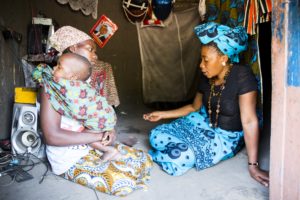
A community paralegal (right) in Mozambique speaks to a mother holding her young baby.
1) Health education, if it reaches communities at all, often focuses exclusively on individual behavior change rather than on patients’ rights or government policy. Women and adolescent girls are taught why birth spacing is important, for example, but not which services should be free or which family planning options they’re entitled to.
Legal empowerment efforts deploy community paralegals—sometimes known as health advocates—who make essential information accessible to everyone by breaking down health policy and rights into simple terms and using local languages.
When Nasmé’s labor pains began one morning early last year, she walked with her sister-in-law to the nearest health center. When they arrived, Nasmé was told by the midwife that if she wanted to be attended to she would need to pay 500 meticais (the equivalent of $8 USD)—a prohibitive fee for the average person in Mozambique.
Most women in her situation would have turned back and gone home. But Nasmé had learned recently from an educational talk she heard a health advocate giving in the community that according to Ministry of Health policy, all antenatal and maternity services should be provided free of charge. After some hesitation, Nasmé asked the midwife about this rule and without further discussion, she was admitted.
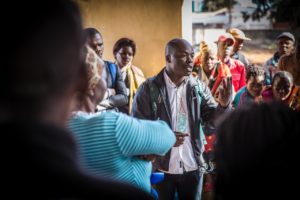
A health advocate addresses a crowd outside a health center in Mozambique.
2) Paralegals support women and adolescent girls to exercise their rights and seek redress when things go wrong.
Women like Alcina*, who gave birth twice amidst physical and verbal abuse by one of the health center staff. She and other mothers had nowhere to turn. “We felt helpless,” Alcina said. “We didn’t know what we were supposed to do when things went wrong.”
Paralegals engage in “casework”, walking alongside their clients to pursue remedies to specific grievances with respect to health service delivery. By the time Alcina gave birth for the third time, a paralegal had begun working in her community. They went together to speak with the health center director, who in turn took measures to ensure respectful maternity care and improve supervision at the facility.
3) When we talk about legal empowerment, at a very basic level what we are really trying to do is to transform people’s expectations – expectations not only about what is possible but about what should be.
Legal empowerment can catalyze a transformation whereby women and girls conceive of themselves as rights bearers, as capable of taking action that impacts their lives.
4) Paralegals empower health workers as well as patients. Health facility staff often become resigned to working within the limitations of a broken system. Lab results that they depend on may be chronically delayed, or they may work in a labor ward with no access to protective gloves.
Legal empowerment can be instrumental in supporting health workers to break their own silence and take action to address problems that keep them from doing their jobs well.
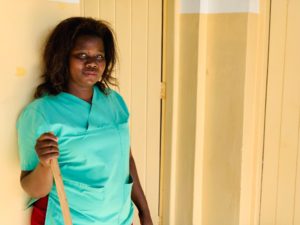
A worker at a health care center in Mozambique.
5) True legal empowerment means not only can ordinary people understand and use laws and policies, they can shape them too.
Paralegals track data rigorously on every case they take on. In the aggregate, this information can provide invaluable insight into how health policy is working in practice and can be used to propose systemic changes that affect the entire population. For example, the development of a mandatory patient rights training curricula for maternal health providers, implementation of new measures to ensure privacy for women during labor and delivery, or improvements to the Ministry of Health’s system of grievance redress.
In Mozambique, we found that these interventions reduced violations of the right to health by 43%. While legal empowerment alone will not make safe motherhood a reality for all, it has a vital role to play in breaking down barriers that prevent the poorest and most vulnerable women and girls from receiving the care they need.
We can have a world in which every pregnant woman has access to quality clinical care, one in which her autonomy and dignity are respected, and one in which we celebrate mother’s day every day by ensuring every mom can understand, use, and shape the health policies that affect her and her family. Legal empowerment is a way forward to that world.